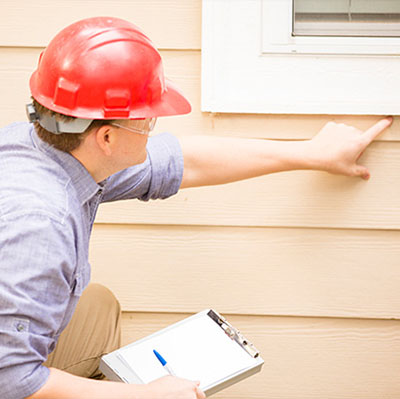What Are Overwintering Pests?
- Details

As winter approaches and temperatures drop you might assume there will be a break from dealing with pesky insects and rodents. However, pests are resilient when it comes to surviving the winter, and infestations along with pest-related damage can occur year-round. Understanding what overwintering pests are and how to deal with them can help protect your home or business.
What Are Overwintering Pests?
Overwintering pests are insects and animals that enter a state of dormancy or reduced activity to survive the harsh conditions of winter. When their metabolic activity slows down, it allows them to conserve energy. For insects and rodents, overwintering ensures they can make it through extreme conditions and emerge when spring returns.
Depending on the pest, they use various strategies but all overwintering pests typically seek warm, protected spaces such as attics, basements, and wall voids in structures. They can enter through small cracks, gaps around windows and doors, attic vents, and foundation openings.
Why Should I Be Concerned About Overwintering Pests?
Finding suitable shelter is a critical factor for overwintering pests. By overwintering in or near your home, pests keep a proximity to food and water for their next life cycle. Garages, barns, sheds, and basements offer ideal conditions for rodents. Pests including cockroaches, cluster flies, and lady beetles often find hidden spaces in crawl spaces, wall voids, and attics to spend the winter undisturbed.
Overwintering not only ensures pests' survival but also provides them with a head start in spring. Many insects emerge as soon as temperatures rise, ready to reproduce. While they may not be highly active during the winter, they can emerge in droves when the weather warms resulting in major infestations.
Preventing Overwintering Pests
There are some actions and preventative steps you can take to lessen the likelihood of overwintering pests and reduce the risk of infestations.
- Rake and dispose of leaf litter and yard debris that is near your home. Dispose of household debris that provides pests with nesting materials, such as cardboard and packaging material.
- Take a look around your house for any noticeable spaces or gaps at doorways and windows paying close attention to these common entry points for pests. Seal gaps with caulk or weather seal.
- Consider hiring a professional pest control company to perform an inspection and address any pest concerns you have.
Understanding pests behavior can help homeowners prevent infestations. Springtime and winter pest activity may look different but the risk is there year-round. By taking proactive measures, homes and businesses become less inviting to overwintering pests and lessen the risk of springtime infestations. The proactive steps we've outlined here along with these winter pest prevention tips will go a long way to protect your property.
Trusted and Local Professional Pest Control
At Eagle Pest Services we offer our customers safe and effective pest protection, focusing on pest control services that provide the best prevention during any season. Pest problems vary with many factors including the environment, that's why we proudly offer exclusive Home Health Plans to tackle your specific pest issues. If you see signs of a pest problem or suspect an infestation contact us at (866) 281-1822 for a free inspection or schedule online.





